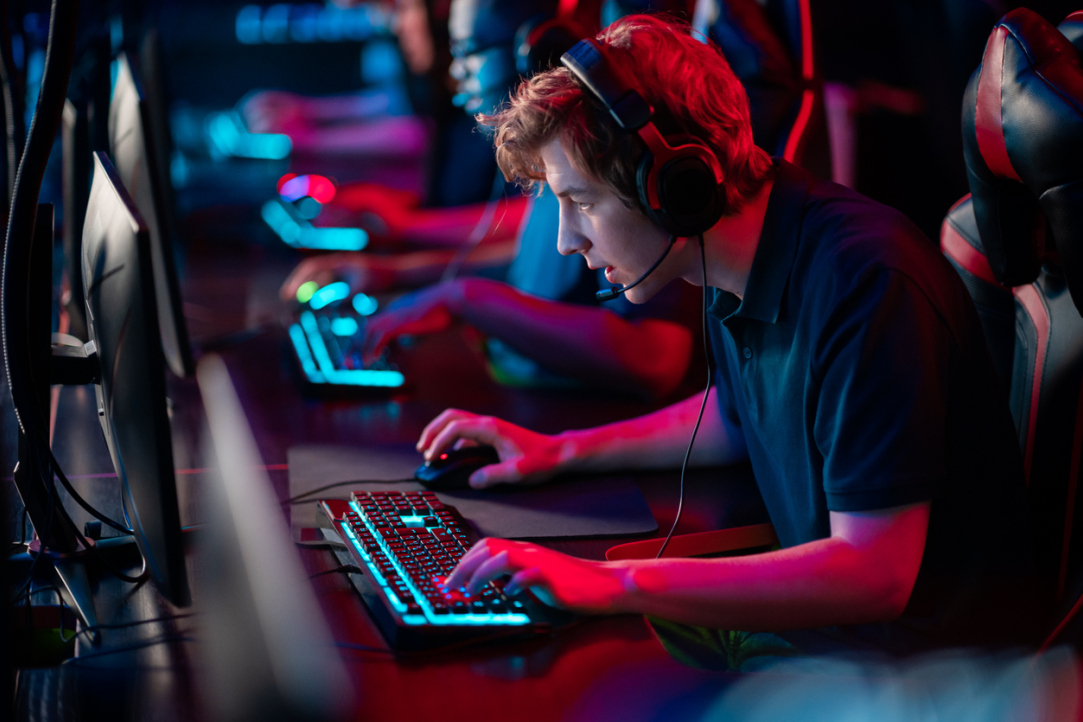Cybersports players are better at playing online

In competitions, esports players, like other athletes, face stress and perform worse due to the pressure of responsibility. The situation worsens when the outcome of the game is decided in overtime. However, during online tournaments, performance drops less significantly than in matches with spectators — the difference can reach up to 30%. This was revealed by a study conducted by a team of authors from IDLAB, the Moscow campus of the HSE, and the European University Viadrina. The article was published in the prestigious Journal of Economic Behavior & Organization.
Esports today is a multibillion-dollar industry with major tournaments where millions of dollars can be at stake. Moreover, in Russia, esports is now recognized as one of the priority areas for development. As in traditional sports, success here requires not only technical skill but also psychological resilience. Understanding how performance-related stress affects player performance will help improve athlete preparation and achieve better results.

Gleb Vasiliev
Junior Researcher at the Scientific and Educational Laboratory for Sports Research of the Faculty of Economics, Gleb Vasilyev, researchers from the International Laboratory of Intangible-driven Economy at the Perm campus of the HSE, Petr Parshakov and luliia Naidenova, as well as researcher Igor Tylkin from the European University Viadrina, studied the behavior of esports players in the game Counter-Strike: Global Offensive (CS).

Petr Parshakov
CS is a team-based competitive online shooter. In matches, two teams of five players compete against each other. Matches usually consist of 1 to 5 maps, which, in turn, consist of short rounds. To win a round, a team must either complete a specific objective or eliminate the opposing team. In tournaments, typically 30 rounds are played on one map. When a team wins at least 16 of them, it wins the map. In the case of a tie, additional rounds are played: overtime begins when the score is 15:15. It is the players' behavior during overtime that became the focus of the study conducted by the team of researchers.

luliia Naidenova
The authors analyzed statistics from nearly a million games between 2012 and 2022, involving both high-ranked and low-ranked players. The sample included over 1,700 esports players. The researchers used two key indicators.
The first was individual performance, which included the players' ranking (calculated as the deviation of their tournament match performance from their average results) and the percentage of accurate shots. These metrics reflect the level of skill under challenging conditions. The second indicator was team coordination, which included instances of "friendly fire" (damaging team members). An increase in friendly fire may indicate tension and communication issues within the team. Pressure and stress were measured by the presence of overtime—additional rounds played to determine the winner in case of a tie. As in traditional sports, in overtime, the outcome often depends on every little detail. The authors also studied the impact of the game format: whether it was a live performance with spectators or an online tournament. About 70% of the matches were played online, with overtime occurring in 9% of them.
It turned out that overtime indeed causes significant stress for players. On average, it led to a nearly 2% decrease in player ratings, and the percentage of accurate shots dropped by 7%. This decrease was observed both in professionals and beginners. "Our research shows that while experienced players outperform their less experienced peers in all formats of the game, this advantage may disappear in overtime," the authors note. The likelihood of mistakes, such as damaging teammates, also increased. The tournament format played an important role. When the competitions were held online, without spectators and extra hype, player performance was approximately 30% higher than in live matches. The researchers attribute this to the psychological factor: the presence of fans increases stress.
The scientists emphasize that the results of the study can be applied in various fields. For example, it is important to consider that the format of work (live or online) significantly impacts stress levels and its effect on team coordination and individual performance. "Esports is an excellent platform for testing such effects. It requires high cognitive activity and team coordination, making it a convenient subject for analyzing behavior under pressure. The results could be useful for HR departments, crisis management, and in areas where teamwork and performance under pressure are crucial, such as IT consulting or startups," the authors comment.
